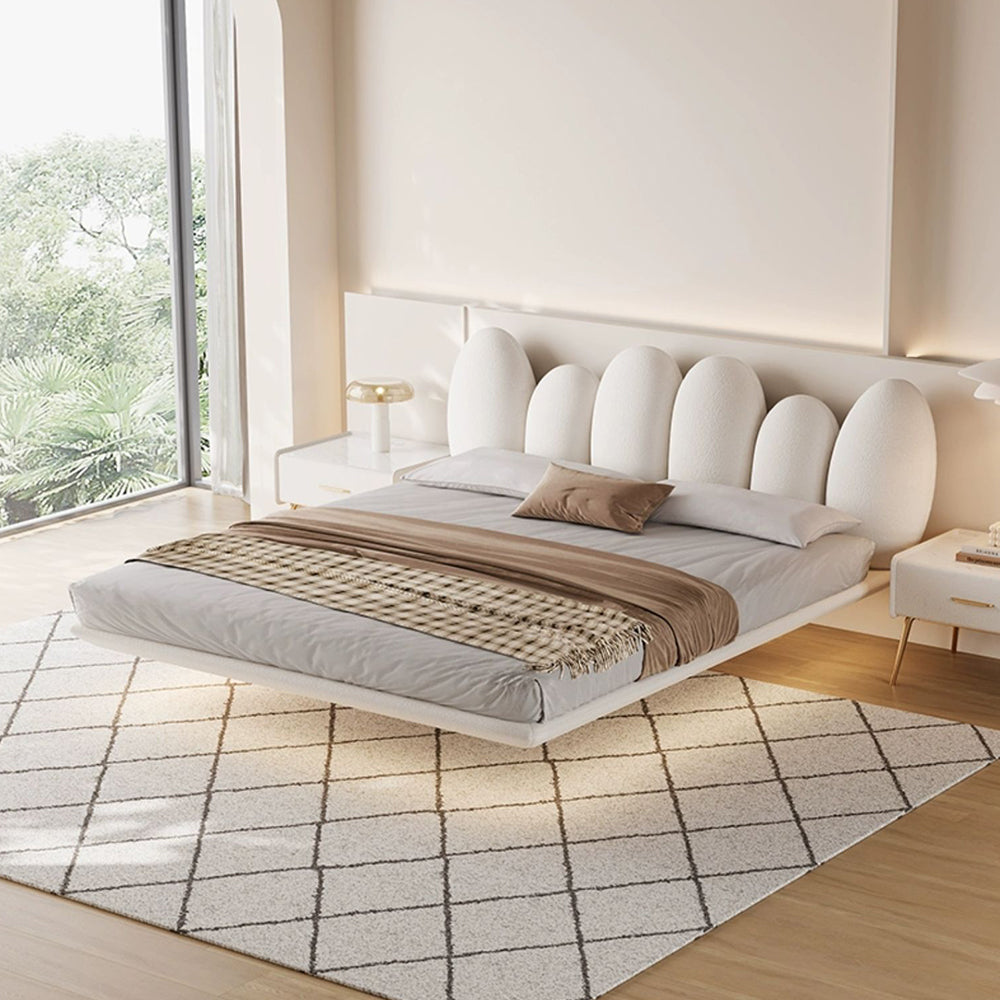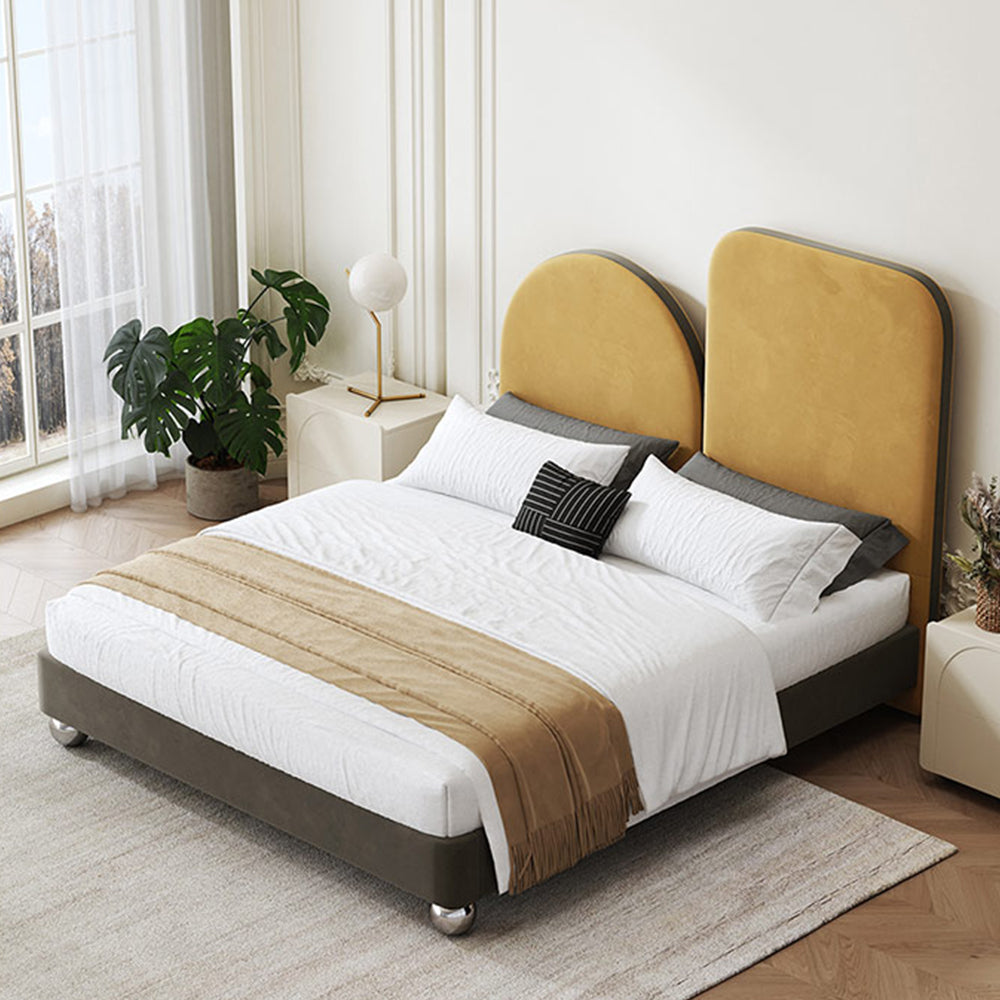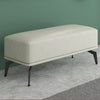How to Clean a Fabric Sofa

How to Clean a Couch (A Simple Furniture Cleaning Hack)
To remove dirt quickly, use the vinegar method: add a few drops of vinegar to a half a cup of water. From a spray bottle, apply the solution to the area of dirt. Blot the area, without rubbing, with a dry paper towel to help lift the stain.
Upholstery Cleaning Products
Use one or a mixture of these (see below for cleaning tips) to get the best possible outcome:
- Dry brush
- Vacuum
- Baking soda
- Steamer
- Vinegar
- Water
- Drying towel
How to Clean Upholstery On a Couch: The Basics (+ How to Clean Upholstery By Yourself)
As with all cleaning – furniture, car interiors, counters, etc. – it's best to know what you're working with. Checking the furniture care codes will help you understand which solvents or cleaners you can use. Once you find the corect solutions and apply liquid to the upholstery, make sure to blot with a dry towel – never rub.
How to Clean a Fabric Sofa for Stains
- Get to the stains quickly. As soon as a spill or stain occurs, get to cleaning it immediately. Waiting too long before treating a stain – even a matter of a few minutes – can cause the stain to set, making it harder to get out.
- Check the manufacturer’s recommendations. Before using any cleaning detergents or solutions, check the manufacturer’s instructions for care, which can usually be found on the sofa’s tags. Failing to use safe cleaning products could mean permanently damaged upholstery.
-
Check the cleaning codes for your fabric sofa. You know those random letters on your sofa’s tags? Those are actually codes! Check out the table below for the list of codes – and what they mean.

— Cleaning Code for Fabric Sofas Chart —
| Cleaning Code | What it Means |
| W | "Water-based cleaner." Only use a water-based cleaner to clean the upholstery. A water-based cleaner is a type of solution that uses water as the main component. |
| S/W | "Solvents and water-based cleaners." It is safe to use both solvents and water-based cleaners. |
| S | "Solvents." Only use a solvent to clean the upholstery. A solvent is a type of solution that uses a cleaning chemical as the main component. |

4. Use a dry brush to remove loose particles. Go over the entire sofa with a stiff brush with natural bristles to help loosen stains and bring dust and dirt to the surface.
5. Vacuum. Before scrubbing and cleaning your fabric sofa, use a hand-held vacuum to remove crumbs and any other loose particles. This will make it easier to identify and focus on troublesome stains when it comes time to clean.
6. Clean with baking soda. Baking soda isn’t just for baking – it’s also an effective cleaning treatment. In fact, sprinkling baking soda over the entire couch will help to remove odors and further loosen stains. You can also use a homemade baking soda solution for any areas of deep-set stains; in a bowl, mix together equal parts baking soda and water. For either the dry or wet solution, let the baking soda sit for 15 to 20 minutes. Once the baking soda has fully absorbed the stain, vacuum it up with a brush attachment. And as with all types of cleaning solutions, always spot treat a test portion of the sofa before cleaning it fully.
7. Spot treat with the recommended agent. Begin cleaning your couch with the recommended product. If you are unsure if the product falls within the recommendations, test a small area for any discoloration before proceeding. Whether you use a water-based cleaner or a solvent (or both), follow the instructions on the packaging. If the instructions say it is safe to do so, use a soft cloth to wipe away the solution.
8. Dry your fabric sofa with a soft towel. Pat down any wet areas with a dry towel to soak up the residual moisture. Gently brush off any remaining cleaning solution.
9. Let your fabric sofa air dry. Let the upholstery air dry overnight, and enjoy a fresh sofa in the morning!
Need to clean a leather sofa instead? Check out the Leather Sofa Cleaning Guide.
How to Clean a Fabric Sofa with a Steamer or Couch Cleaner
What you’ll need:
An upholstery steam cleaner. Make sure before using that the manufacturer’s recommendations state it is safe for a fabric couch. Note, too, that just because your sofa is water-safe doesn’t make it heat-safe. As with other types of cleaners, always test spot an area before going full-steam (pun-intended)!
What to do:
- Read the manual. There’s a reason why a steam cleaner comes with instructions. Read them carefully before beginning.
- Vacuum first. Vacuuming your sofa – or anything, for that matter – before cleaning makes it a whole lot easier to clean it. Dirt, dust and other loose particles won’t get in the way and will give your steam cleaner a clean canvas to work from.
- Keep the air circulated. Turn on a fan and open all the windows in the room for a strong cross breeze. This will help to keep the air circulation strong, preventing moisture buildup and residue.
- Spot test an area first. This step is so important, it bears repeating. Pick a small hidden spot to test the cleaner, such as the back or the inside of the sofa’s skirt (if it has one, and if the inside material is made of the same fabric as the outside of the sofa).
- Let the sofa air dry. Don’t sit on the sofa while it’s still wet. Keep the windows open to help dry out the room. Be aware that it may take leaving the sofa untouched overnight for it to fully dry.
-
Vacuum last. Vacuuming again, once you’ve steamed the upholstery, will help ensure that any dirt that was loosened by the cleaner gets removed. Just remember to wait until the sofa is completely dry before vacuuming!

How to Disinfect a Sofa
Need a quick DIY disinfectant spray for fabric? In a spray bottle, mix a diluted essential oil known for its antibacterial properties (tea tree is a good one) with a bit of rubbing alcohol. Lightly spray your sofa, let the solution sit for a few minutes, then run a vacuum over the sofa's surface!
How to Clean a Polyester Couch
For polyester (and most other synthetic fabrics), cleaning a sofa should be kept simple (using too many ingredients or deeply penetrating the fabric with water can damage the look and feel of the sofa. The best way to go about cleaning a polyester couch is to stick with a lightly dampened sponge, brushing it along lightly over the area of the stain. If it’s a grease stain or one that won’t come out with just water alone, then you’ll benefit from diluting a small amount of dish soap to cut through the stain. As long as you keep the brush strokes of the sponge light and avoid pressing or squeezing the sponge, you won’t have to stress over whether or not you’re damaging the polyester (you’re not)!
How to Get Water Stains Out of Couch
Spilling a glass of water all over a seat cushion can make anyone exclaim a curse word under their breath – but we’re here to tell you that it’s actually not that bad. (If you had to choose between coffee, tea and water, water is the one you want to spill.) As long as you get to the spill quickly, your sofa will be in good shape:
- First, vacuum the spill. Set your cleaner to the liquid setting, and use it to suck up as much of the moisture as you can.
- Try a diluted vinegar solution. If the vacuum fails to remove the stain, that means water is trapped in with the fibers of the sofa, and if there is a visible water stain, that means the water molecules are attaching themselves to the fibers and particles of the sofa – hidden dust and dirt included. To help break it up, vinegar can be a powerful force, as long as you dilute it and spray lightly.
- Blot the spill with a dry towel. Preferably, use a microfiber towel, which is extremely absorbent – some can hold up to seven times their weight in water!

How to Get Grease Stains Out of Couch (or How to Get Oil Stains Out of Couch)
While we wish all spills would contain just water, sometimes, that’s not the case, and grease stains can occur, as well. While trickier, removing them is possible. The best way to go about it is to sprinkle baking soda – baking soda is your friend for grease stains! Baking soda is extremely absorbent, and sprinkling just a handful over the area of the stain can help attract and lift the grease to the surface. Leave baking soda over a stain for twenty minutes to give it time to fully soak it up; then, vacuum it up, blotting afterwards any remaining residue with an absorbent towel.
How to Clean Couch Cushions + How to Clean Foam Cushions
The best way to clean removable covers of cushions of a couch is to machine wash them, but ONLY if the tag instructions say this is safe. If the cushions do not come with removable covers, then you can try lightly spraying tough stains with vinegar (or mixed solution outlined above), then vacumming the cushions. If the cushions are damp, remove them from the couch and place them in an open space until they are completely dried off.
How to Wash Couch Cushion Foam
Sometimes, the spill will seep deep into the sofa, past the upholsterey lining. In this instance, the best approach is to remove the upholstery and get to the stain in the foam itself. To wash the foam inside the cushions by hand, use the vinegar solution (about a half a cup of water with a few drops of vinegar) and apply the solution with a cloth; blot the area of dirt very, very lightly, then leave out in an airy place to completely dry. If the upholstery cover is not removable, simply apply these steps to the upholstery itself.
Can You Use a Carpet Cleaner On a Couch?
Yes, you can use a carpet cleaner on a couch. Carpet shampooers apply to upholstery, including sofas. Just make sure the cleaner you are using is safe for your particular sofa – the easiest way to do this is by cross-checking the cleaning codes on the tag attached to the sofa.
A Note On Deep Cleaning Upholstery
Sometimes, the best of home efforts won't cut it. If you spilled an entire glass of wine on a fabric couch, if a pet had quite the (smelly) accident on a fabric couch or something else horrifying has got the best of a fabric couch, you may want to take it in to a professional cleaner. Letting the pros handle the stain will cost more but will take the stress off and ensure your sofa is getting the best possible treatment.









